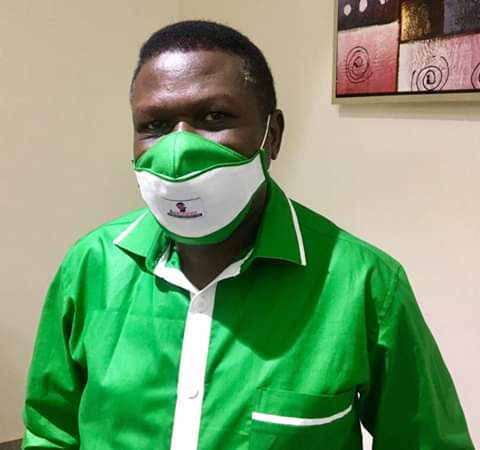
By Norbert Mao
Kampala—14, June 2020: In order to honour the courage and conviction of the children who were killed in Soweto for protesting the racist educational policies of the apartheid regime, the Organisation of African Unity (now the African Union) declared 16 June to be commemorated as the Day of the African Child. The day is also significant because it shines a spotlight on the condition of the children of Africa today.
This year the celebrations will be held under the shadow of the Covid-19 pandemic which has had a devastating effect on African children. More than a quarter of a million African children are out of school waiting anxiously for the governments to reopen schools.
Africa is rich in natural resources and has massive tracts of arable land. Africa is also rich in wildlife resources and tourist attractions. But Africa is also seriously deficient in educational facilities. The allocation of resources to education is very minimal in African countries.

This has severely compromised the quality of education in Africa. A World Bank study estimated that 87 percent of children in Sub-Saharan Africa face poor learning conditions and consequently lack functional skills in today’s ever changing labour market.
We also need to look at the impact of school closures prompted by Covid-19. The shutdown of schools have had many negative impacts on millions of children of school-going age. Immunization services which children normally access from school have been disrupted, and so have the feeding programs and the distribution of sanitary pads. Schools normally stand in the gap but with the closures, many children are back home where their poor parents cannot offer them some of the services they have been getting from school.
African governments have put in place various stopgap remote learning measures to ensure that children continue to learn amidst the lockdown, but many of the measures are unsuitable. They simply accentuate inequalities in the field of learning. Remote learning require platforms that depend on the ownership of computers or smartphones and access to the internet. But poor rural households have no access to internet and the required remote learning hardware.
The Brookings Institution recently reported that while 90 percent of the children in developed countries have adapted to remote learning platforms, in Africa, less than 25 percent have access to remote learning platforms. Even common mediums of communications like radios and television are concentrated in urban areas. The children in rural Africa continue to languish in pathetic learning environments.
The dilemma facing African governments now is how to reopen schools. In Uganda, the government has issued several contradictory statements. Dates were announced for reopening schools but later retracted. Both the government and the school going children face a dilemma. But that dilemma is unnecessary.
Through a combination lockdown, curfew, tracking and testing, sanitization and social distancing, Uganda has effectively contained the corona virus. The corona virus has not overtaken us. Therefore, a partial reopening of schools can be implemented with no risk that our efforts at flattening the curve will be irreversibly undermined.
In reopening, there’s no one size fits all approach. Every approach should be context specific. Internet based learning platforms can continue but for areas without internet, the schools can facilitate teachers to prepare assignments and readings texts and the children pick up the same periodically while submitting previous assignments. Schools will now become an arena for exchange between students and teachers, rather than a place where they meet face to face. Social distancing rules will have to be enforced to avoid overcrowding.

The policy decision required here is that “Teaching” should be declared an essential service. In addition, the government, through schools and local governments, can recruit volunteer teachers and license them. With community support, parents will regain their confidence and send their children back to school.
We need a partial reopening of schools. Unless we facilitate learning amidst the coronavirus pandemic, our children will lose learning opportunities and may drop out completely. The impact on their future will be irreversible. They will be scarred for life.
The author is a Democratic party President

